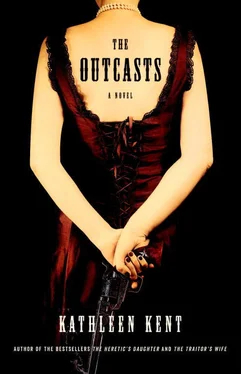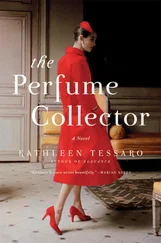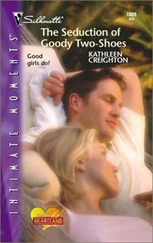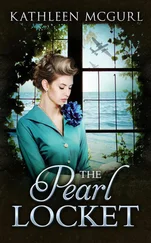Nate followed behind Pierre, who cleared a way through the people standing two abreast on the stairwell, and, with Gorman at his back, they walked out of the church onto the street, where the bounders and footpads clapped him on the back and the whores pressed his hand warmly and whispered into his ear things he couldn’t quite make out above the swelling noise and confusion.
He was taken to a nearby saloon, and a whiskey was pressed into his hand, which he quickly drank. And then he drank another, and another, all the while accepting with a growing sense of amazement the sly, excitable good wishes of Gorman’s ever-expanding street court, all of them assuring Nate he was now one of their own. When Gorman finally asked him the name of the man he sought, Nate shouted into his ear, “William McGill,” and told him about Lucinda traveling with him. Gorman turned his head away for a moment but finally nodded and moved off.
A fiddle, and then a squeezebox, began to scratch and wheeze above the din and he later remembered dancing with a woman, his feet moving faster than his lagging mind, until his knees could not support his weight and Gorman guided him to the door, signaling to a girl to take him home. Nate thought that home sounded like a good idea and staggered behind her for several blocks before thinking to ask her whose home he was going to. The girl put one of his arms around her shoulders and guided him into a small, one-story house, the front door unlocked, the two rooms modest and tidy.
She sat him on a chair and knelt in front of him to take off his boots, and he took her chin in his hand and raised her high-cheeked face to the light.
He asked her who her people were and she said she was Caddo. He then told her that his wife was Cherokee, and the girl nodded as though the revelation were only right and proper. She unpinned her hair and moved him to sit on the bed. But he took her arms to stay her movements and asked if she would sit on the chair for a while, just so he could look at her. She slipped down her petticoat, baring herself to the waist, and he could vaguely see the small globes of her breasts behind the black hair that fell over them.
When the yearning to touch her became too terrible to bear, he mumbled his thanks and lay on the floor, his back to her. Through the girl he was able to summon the image of his wife under lamplight: the particulars of her features, her softly rounded moon face, and the jet hair that cloaked her shoulders falling straight as rain.
He finally closed his eyes to sleep, and sometime in the middle of the night, the girl rose up and covered him with a blanket.
The staircase was wide and curving, made of marble and carpeted down the middle with a runner of majestic blue. Lucinda stood at the top of the stairs holding a small tin box in one hand and gripping the banister tightly with the other. She had purposely set her naked feet on the exposed marble, hoping its brittle chill could distract her from the recent memory of what had been done to her body—what she had allowed to be done—and her growing anxiety coiled and uncoiled in her stomach like a worm.
She shivered inside her nightdress, tissue thin and stained with sweat that was not her own, preparing to place one foot down the riser, and the memory of standing atop Mrs. Landry’s stairwell slid into her mind. That moment, too, had been a supposed beginning, a stepping from one life into another. She had made an expert copy of the German’s key from an impression scored into a thin bar of soap in a tin box, just like the impression she had made of the key belonging to her fish, the key that opened the front door to the house with the curving marble staircase.
Clutching the banister, she followed the first step with a second, but she could go no farther until she slowed her breathing, bringing her mind into sharper focus, ignoring the pain of the abraded flesh on her buttocks and thighs. She had had no fall for days now, but she felt clenched and ragged, as though a new kind of sickness had seeped into her pores along with the damp and the cold.
It seemed to her that everything of import in New Orleans had been built of marble: the monuments, the interiors of the mansions that lined First Street, the mausoleums in the cemeteries. To stand within a marble hall was to be comforted by the exquisite coolness of the veined white stone. But to Lucinda, looking across the grand foyer of the house, with its marble floors and columns, softly luminous in the lamplight, it now gave her the feeling of being entombed alive.
She moved her hand down the banister, her feet following suit another few steps until she stood at the midway point. She heard a door open somewhere on the second landing and she gripped the tin box until its edges broke through the skin of her palm, like a shard of metal piercing a crust of ice, and then the door closed again and she realized it was Tartine using the water closet. Minutes passed and there were no further sounds.
She padded softly to the bottom of the stairs, and though the servants had all been sent away, she peered through the darkened foyer for any moving shadows. A sudden cramping in her abdomen caused her to double over in pain, and she stared at a pinpoint of blood at her feet before realizing that the hand holding the tin box had been cut.
A hollow sensation began building in her head, and pressing her injured palm with the bottom of her shift, she leaned against a column and closed her eyes. This, then, was the moment that had been approaching since the day William McGill lay with her in her bed staring into her face, which was contorted and grinning in a stricture of pain like a death’s-head mask, promising to care for her as long as she remained loyal. She had never asked the cost of that loyalty; had never wanted to know. He was the one person who, in the moments of confronting her waking terrors, would not turn away, did not shun or pity her. He would hold her more closely, in those unmarginned spans of time, peering readily into her eyes as they stared unfocused and vacant towards the ceiling.
It was more than anyone else had ever done—more than her own father—and now the bill for the partnership had come due. Her belly cramped again and she clutched the tin more tightly.
Bill would take the impression she had made and fashion a key that would gain him access to the very house in which she stood. He would rob her fish, silently and expertly, taking all the jewelry and gold he could carry in one large carpetbag. Then they would leave for Atlanta, or St. Louis, or some other city of their choosing.
Her spine, pressed against the marble column, began to ache, and she tried to remember the last time she’d felt something other than cold. Her mind summoned an image from Middle Bayou: lying close to May in a hay field on a warm afternoon, the girl’s arms around her neck, her body expressive with the heat of youth and perfect health.
She pushed herself off the column and made her way carefully across the foyer. She slipped the bolt, twisted the brass knob, and opened the heavy door, stepping to one side as she did so, but the space remained unfilled by the expected form, and she moved out onto the darkened porch. She heard her name called softly once and saw the glow of a cigar in the crape myrtles fronting the house.
Lucinda eased the door closed and moved shivering into the deeper shadows of the trees, her hands clasped around her arms. She saw Bill reach out with one hand as though to touch her face, but his fingers closed around her throat and he shoved her hard against the wall.
He said, “Keep me waiting like that again and I will hurt you in ways you can’t even imagine.”
She handed him the tin box and he pocketed it. “Tomorrow is the night,” he said. He looked at her stained shift and shivering form and whispered forcefully, “You know, Tartine says she’s never been sick a day in her life. Stay the course, Lucy, or I’ll be taking her to St. Louis in your stead.”
Читать дальше












